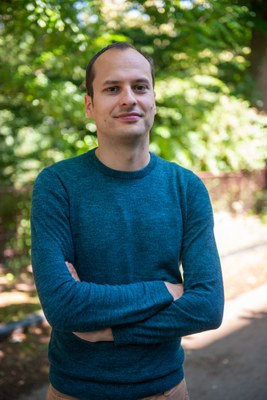New FNRS-qualified researcher at Transitions - Vincent JACQUET
 We are pleased to announce that Vincent Jacquet has been appointed F.R.S.-FNRS Qualified Researcher by the Board of Directors on 21 June 2022: https://www.frs-fnrs.be/docs/Resultats/FRS-FNRS_Candidatures_retenues_2022.pdf
We are pleased to announce that Vincent Jacquet has been appointed F.R.S.-FNRS Qualified Researcher by the Board of Directors on 21 June 2022: https://www.frs-fnrs.be/docs/Resultats/FRS-FNRS_Candidatures_retenues_2022.pdf
We would like to congratulate him on his excellent appointment! His research project, entitled 'Citizen impact', will certainly help to stimulate new research activities at the intersection of the Institute's three divisions: in a context of democratic 'crises', where democratic innovation reforms are multiplying (e.g. citizens' panels), he will analyse the impact of these citizens' panels on public action by governments, in terms of environmental and health policies. For more information on this project, see below.
**** "Citizen Impact" research objectives ****
Developing new channels of citizen participation and deliberation is a popular remedy to cure the malaise of contemporary representative regimes. Various elected officials, political observers and academics argue it could make our political system more legitimate, fair and efficient. This is not anymore a slogan. Citizens' assemblies (CAs) - forums where 'ordinary' citizens are randomly selected to deliberate on a particular issue and make policy recommendations - have been widely organised all around the world, most notably in European countries where we observe their steadily increase since 2010. Nevertheless, are such innovations living up to their ambitious goal of democratic renewal? On the opposite, are they mere 'window dressing' strategies used to deflect criticism? There is to date no satisfying answers to these questions. Despite many sophisticated studies focusing on conditions for CA internal success (e.g. representativeness of participants and quality of the exchanges), contemporary scholarship has left unexplored their more external impacts on the functioning of the political system.
In the next five years, I seek to assess whether, how and why CAs matter in contemporary European countries. For that purpose, I develop a research framework that connects the study of participatory and deliberative processes with several decades of research on policy analysis, governance and institutional transformations. This new approach considers CA impact as multidimensional and complex phenomenon. It suggests that to assess this impact, we should not only take into account (1) the direct translation of CA recommendations into policy decisions, but also how CAs indirectly (2) affect social and political groups capacity of action in the political systems and (3) shape the dominant discourse or narrative about the state of our democracy. To address these three dimensions, the research design combines different methods to compare macro national trends (frame analysis, survey with civil society organisations) and to disentangle complex processes (process tracing, interpretive analysis). Hence, the project opens a reflexive and critical horizon in the study of citizen participation and deliberation in political systems.

